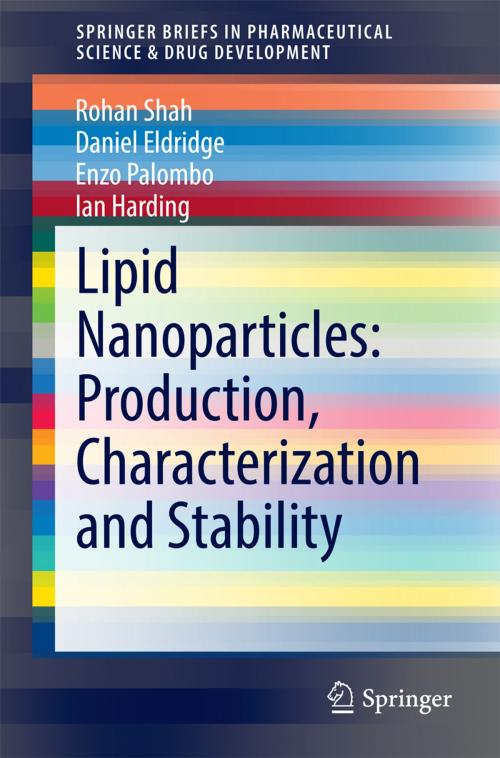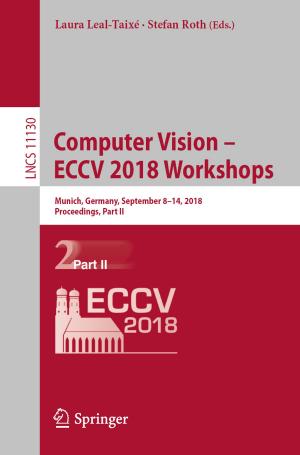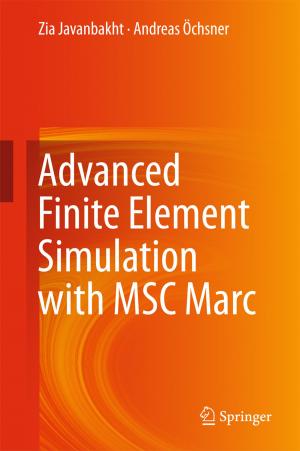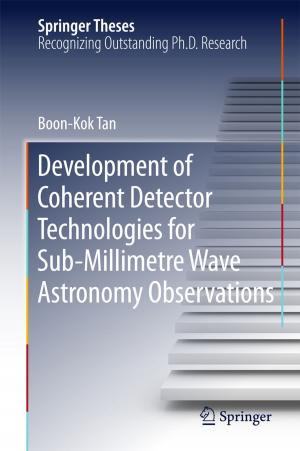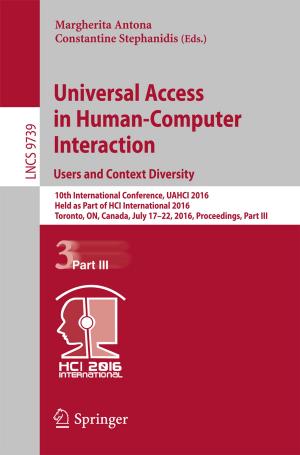Lipid Nanoparticles: Production, Characterization and Stability
Nonfiction, Health & Well Being, Medical, Specialties, Pharmacy, Science & Nature, Science, Biological Sciences, Biotechnology, Technology| Author: | Ian Harding, Daniel Eldridge, Enzo Palombo, Rohan Shah | ISBN: | 9783319107110 |
| Publisher: | Springer International Publishing | Publication: | August 28, 2014 |
| Imprint: | Springer | Language: | English |
| Author: | Ian Harding, Daniel Eldridge, Enzo Palombo, Rohan Shah |
| ISBN: | 9783319107110 |
| Publisher: | Springer International Publishing |
| Publication: | August 28, 2014 |
| Imprint: | Springer |
| Language: | English |
What are lipid nanoparticles? How are they structured? How are they formed? What techniques are best to characterize them? How great is their potential as drug delivery systems? These questions and more are answered in this comprehensive and highly readable work on lipid nanoparticles. This work sets out to provide the reader with a clear and understandable understanding of the current practices in formulation, characterization and drug delivery of lipid nanoparticles. A comprehensive description of the current understanding of synthesis, characterization, stability optimization and drug incorporation of solid lipid nanoparticles is provided. Nanoparticles have attracted great interest over the past few decades with almost exponential growth in their research and application. Their small particle size and subsequent high surface area make them ideal in many uses, but particularly as drug carrier systems. Nanoparticles made from lipids are especially attractive because of their enhanced biocompatibility imparted by the lipid. The work provides a detailed description of the types of lipid nanoparticles available (e.g. SLN, NLC, LDC, PLN) and how they range from imperfect crystalline to amorphous in structure. Current thoughts on where drugs are situated (e.g. in the core, or at the interface) and how this can be manipulated are discussed. The many techniques for production, including the author’s own variant of microwave heating, are fully discussed. Techniques for measuring arguably the most important characteristics of particle size and polydispersity are discussed, along with techniques to measure crystallinity, shape and drug capacity. Finally, a full chapter on techniques for measuring stability, both in the absence and presence of drugs, is discussed, along with suggestions on how to optimize that stability. This work appeals to students of colloid science, practitioners of research into drug delivery and academics alike.
What are lipid nanoparticles? How are they structured? How are they formed? What techniques are best to characterize them? How great is their potential as drug delivery systems? These questions and more are answered in this comprehensive and highly readable work on lipid nanoparticles. This work sets out to provide the reader with a clear and understandable understanding of the current practices in formulation, characterization and drug delivery of lipid nanoparticles. A comprehensive description of the current understanding of synthesis, characterization, stability optimization and drug incorporation of solid lipid nanoparticles is provided. Nanoparticles have attracted great interest over the past few decades with almost exponential growth in their research and application. Their small particle size and subsequent high surface area make them ideal in many uses, but particularly as drug carrier systems. Nanoparticles made from lipids are especially attractive because of their enhanced biocompatibility imparted by the lipid. The work provides a detailed description of the types of lipid nanoparticles available (e.g. SLN, NLC, LDC, PLN) and how they range from imperfect crystalline to amorphous in structure. Current thoughts on where drugs are situated (e.g. in the core, or at the interface) and how this can be manipulated are discussed. The many techniques for production, including the author’s own variant of microwave heating, are fully discussed. Techniques for measuring arguably the most important characteristics of particle size and polydispersity are discussed, along with techniques to measure crystallinity, shape and drug capacity. Finally, a full chapter on techniques for measuring stability, both in the absence and presence of drugs, is discussed, along with suggestions on how to optimize that stability. This work appeals to students of colloid science, practitioners of research into drug delivery and academics alike.
